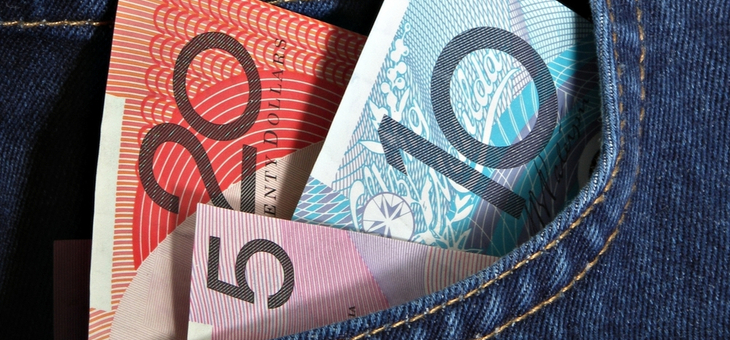After pensioners were denied an Age Pension increase in September last year, due to a rare case of deflation in the wake of the coronavirus pandemic, the latest figures from the Australian Bureau of Statistics (ABS) suggest there may be some good news on the horizon for March.
The Age Pension is usually indexed in March and September, but last year the September indexation didn’t happen for the first time in more than 20 years due to the Consumer Price Index (CPI) dropping 1.9 per cent in the June quarter.
However, CPI rose 1.6 per cent in the September quarter and 0.9 per cent in the December quarter, with the latest figures released by the ABS on Wednesday.
The crucial figure in the CPI numbers was whether inflation had grown beyond the CPI number of 116.2 in March 2020, and it jumped over the mark to 117.2 for December 2020. This could equate to an increase in a little over half a per cent, or just under $5 a fortnight.
The actual level of the pension increase that pensioners can expect in March will still be a matter for the Department of Social Services to determine, but the latest CPI figures mean that there will be an increase of some kind.
This is because indexation is based on the greater movement in either the CPI or the Pensioner and Beneficiary Living Cost Index (PBLCI).
The PBLCI measures the effect of price changes on the out-of-pocket living expenses experienced by households whose main source of income is government payments. The ABS will release the PBLCI figures in February.
According to the ABS, the rise in the December quarter CPI figures was primarily caused by an increase in tobacco excise and the unwinding of the government’s free child-care scheme.
This means that non-smoking pensioners will be most unaffected by the significant price rises for the quarter, but will still reap the benefits of any pension increase on 20 March.
Other price rises in the December quarter were domestic holiday travel (+6.3 per cent), with state and territory borders reopening in the lead up to the Christmas period, and medical and hospital services (+2.5 per cent), after private health premiums increased on 1 October following a six-month freeze.
The most significant price fall was in electricity (-7.5 per cent) after the WA Household Electricity Credit provided households with a one-off $600 credit, resulting in a fall in electricity prices of 66.7 per cent in Perth. Perth was the only capital city to record a negative CPI rate from the previous quarter as a result of this scheme.
Food and non-alcoholic beverages rose slightly (+0.2 per cent) after the end of Melbourne’s lockdown period saw consumers again able to dine at restaurants, but this was offset by a six per cent fall in the price of vegetables thanks to easing drought conditions.
Clothing and footwear was also less expensive (-1.0 per cent) with women’s garments leading the way (-5.4 per cent) due to the increased participation of retailers in promotional events such as Black Friday.
How much do you think the Age Pension will increase by in March? Should the government increase the base rate to help pensioners deal with any income shocks they may have suffered as a result of the pandemic?
If you enjoy our content, don’t keep it to yourself. Share our free eNews with your friends and encourage them to sign up.
Related articles:
https://www.yourlifechoices.com.au/age-pension/governments-death-tax-talks-spark-calls-for-universal-basic-pension
https://www.yourlifechoices.com.au/government/are-legally-blind-pensioners-entitled-to-more-money
https://www.yourlifechoices.com.au/finance/important-details-on-how-your-income-stream-information-is-updated

